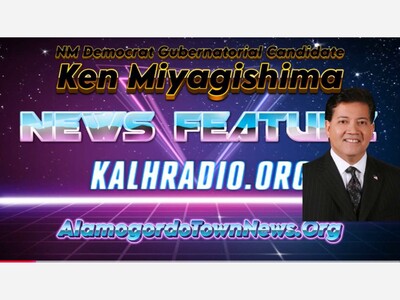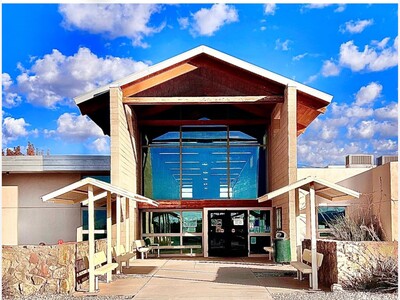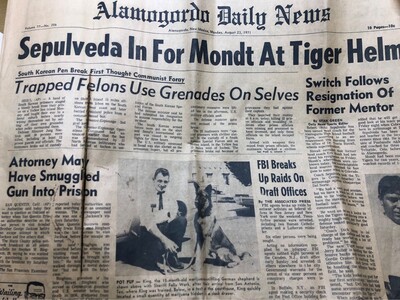The 72 bills that reached the governor’s desk and those that didn’t
New Mexico lawmakers introduced a total of 658 bills this session, nearly 10 times more than they ended up actually voting to pass onto the governor.
By the time the Legislature finished the budget-focused 30-day session on Thursday, Gov. Michelle Lujan Grisham had signed three bills: House Bill 1, House Bill 141 and House Bill 171.
House Speaker Rep. Javier Martinez (D-Albuquerque) said in the 20 years he has been advocating at the Legislature and then serving in it, he has never been more proud of a state budget than the one sitting on the governor’s desk.
“It is a budget that has put the people of New Mexico first,” Martinez said. “It is a budget that values the people of New Mexico, that truly incorporates the needs of rural New Mexico and balances those with the needs of urban New Mexico.”
In and outside the state budget, those included bills on community safety, education, health care, affordable housing, workforce, the economy and climate change, said outgoing House Majority Leader Gail Chasey (D-Albuquerque).
“These investments prioritize our state’s most pressing, immediate needs while also investing in the future, laying foundations that will have lasting, positive impacts for decades to come,” Chasey said.
Out of 658 bills introduced, 72 of them were passed by both the House of Representatives and the Senate, shown below.
Lujan Grisham still has until March 6 to sign or veto bills. After that, any legislation she leaves untouched will be “pocket vetoed,” and would not become law.
Unfinished business
Martinez said “unfinished business” this session included the tribal education trust fund which died on the Senate floor, a proposal that would have brought more accountability and transparency to government that died in the Senate Judiciary Committee, and a statewide paid family and medical leave initiative that failed in the House.
“These are bills that are going to come back, because this caucus believes in government transparency and accountability,” Martinez said. “We’re going to keep fighting. That bill is going to happen, because it is something that the people expect us to do.”
Martinez said paid family and medical leave is a big proposal that “deserves to be vetted and debated.”
“I’m proud of the fact that this floor gave it a robust hearing for three hours yesterday,” Martinez said. “(The Paid Family and Medical Leave Act) is not going away. The people need it, the people deserve it. We’re going to come back next year, we’re going to make the tweaks that we need to make, and we’re going to move forward.”
Asked whether there are any public safety proposals he expects to return next year, Martinez said it’s “too early to tell.”
“Public safety is a big subject and as a Legislature, we must address issues as they come up, understanding they didn’t come up overnight,” he said. “For now, I think what we passed is targeted. It will be impactful. As the months go by and all of us go meet with our local law enforcement, local (District Attorneys), local (Public Defenders), with people on the ground, to see what is working and what needs to be tweaked.”
Minutes later on Thursday upstairs in the governor’s cabinet room, Lujan Grisham told reporters she’s seriously considering calling for a special session focused on public safety and crime.
“It’s not off the table that we have a public safety special session,” Lujan Grisham said. “Special sessions don’t always give you the results that you intend.”
There have been some “historically bad” regular sessions and special sessions, she said.
“My job is to make sure that we’re focused and deliberate,” she said. “I don’t think it’s safe out there, and I don’t think that (New Mexicans) think it’s safe out there, because it plays out horrifically every single day.”
No signature needed
Lawmakers passed another 37 pieces of legislation which were either memorials or resolutions, which do not have the force of law and do not need the governor’s signature.
Resolutions are formal declarations and can be used to place constitutional amendments on the ballot. Memorials are often used to express formal legislative intent. Lawmakers introduced 119 of them.
Source New Mexico is part of States Newsroom, a network of news bureaus supported by grants and a coalition of donors as a 501c(3) public charity. Source New Mexico maintains editorial independence. Contact Editor Shaun Griswold for questions: info@sourcenm.com. Follow Source New Mexico on Facebook and Twitter.
More News from Alamogordo
- Centrist Gubernatorial Candidate Ken Miyagishima Weighs In on U.S. Capture of Venezuelan President Nicolás Maduro Breaking the mold of most Democratic leaders Ken Miyagishima compares the military action to that of Noriega
- Alamogordo Prepares for 2026 MLK Day Freedom March and Community Celebration March and hosted events at the Dudley School January 19th














